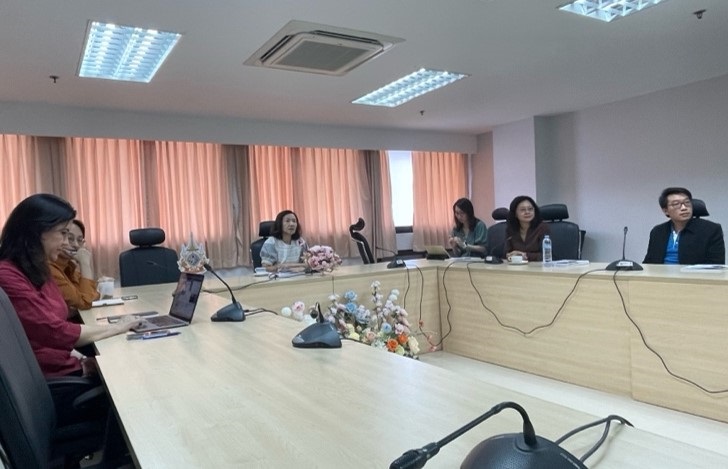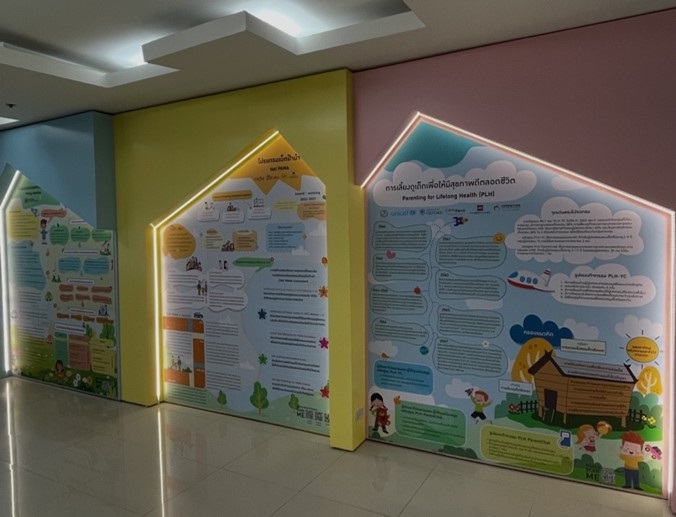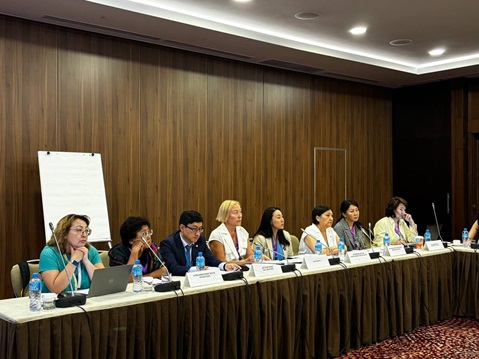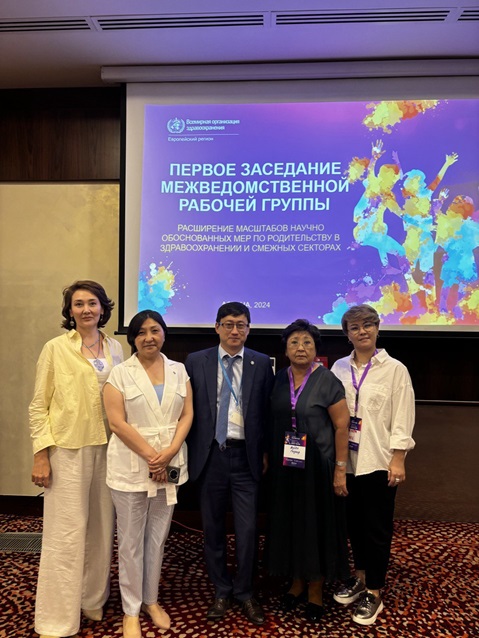Country updates
Colombia
LEGO Project – Colombia
In Colombia, the LEGO project has promoted the development of strategic lines related to:
- Generation of knowledge through the construction and socialization of key documents and tools on parenting.
- Capacity building for health officials to work with fathers, mothers and caregivers.
- Inter-sectoral coordination for institutional strengthening in parenting, care and prevention of violence against children.
- Expansion of evidence-based projects and strategies for the generation of parenting tools aimed at fathers, mothers and caregivers.
Within the framework of the first strategic line, PAHO/WHO Colombia has worked on the construction and dissemination of evidence-based standards which should be incorporated in all interventions that address parenting and care. 31 standards have been constructed, divided into 10 dimensions, associated with parental support for the improvement of early child development and the prevention of all forms of violence against children. This process has also included the mapping of strategies implemented at the national and territorial levels, analyzing their degree of compliance with the standards.
With regard to the component related to capacity building for the health sector, we have worked with the Ministry of Health to include a module on upbringing and care within the clinical tool for early childhood developed for the training of health personnel. We also worked on updating Community IMCI, including key parenting tools for fathers, mothers and caregivers. With ICBF, a strategic partner of the project, we are working on the implementation of the National Policy of Care 2025-2035 (CONPES 4143) through the construction of toolkits aimed at parents and caregivers and addressing key aspects of positive parenting.
Regarding the third component, we worked on the expansion of the Apapacho and Familias Fuertes initiatives, which seek to provide direct support to fathers, mothers and caregivers in parenting processes during the life cycle (early childhood, infancy and adolescence).
Finally, for the fourth component, in order to strengthen the harmonization in the generation of tools, we support the development of training processes on key parenting tools for the ICBF personnel. This also includes support for the CONPES 4143 inter-institutional work plan through capacity building and evidence generation processes.
Contact information
- Evelyne Degraff – edegraff@paho.org
- Juliana Iregui – ireguimar@paho.org
Jordan
The WHO Jordan Country Office, in collaboration with the Jordanian Ministry of Health (MOH), Greater Amman Municipality (GAM) and the National Council for Family Affairs (NCFA), has made significant steps in integrating evidence-based parenting interventions in primary healthcare services and community centers.
Over the past year, we have reached more than 140 health centers in all Jordanian governorates, 191 healthcare providers and 60 grandparents in community centers, ensuring sustainable integration of parenting support within primary healthcare facilities. Additionally, a dedicated effort to engage grandparents led to a specialized Training of Trainers (ToT) session and subsequent workshops, fostering intergenerational caregiving.


Strategic planning and stakeholder coordination have been pivotal. Multiple workshops refined the National Minimal Standards for Parenting Programs, while taskforce meetings, works as coordinating platform for parenting interventions in Jordan , ensured alignment with international frameworks. A Community of Practice (COP) workshop further enhanced cross-country knowledge exchange, solidifying Jordan's leadership in parenting program development.
Field visits to MOH health centers helped refine training methodologies and implementation strategies, while curriculum enhancements incorporated the nurturing care framework. Awareness initiatives, including videos on positive parenting and school-based parental involvement, strengthened outreach efforts. WHO’s engagement with the Greater Amman Municipality has been instrumental in recognizing the role of grandparents in child development—an approach that fosters community resilience and multigenerational support.
Looking ahead, the project will continue expanding its impact through additional training sessions, dissemination of national standards, media outreach, and the development of digital solutions for parenting interventions. These efforts are laying the foundation for a more comprehensive and sustainable approach to child development and caregiving in Jordan.
For more details or any inquiries, please reach out to [Alaa Al-Zaghoul alzaghoula@who.int or ALKAYYALI, Dr Ghada alkayyalig@who.int
Kazakhstan
Kazakhstan is one of the countries implementing the WHO–LEGO Foundation joint initiative on supporting parents, with a dual focus on national coordination and service-level interventions.
Following a national situation analysis and stakeholder consultations in 2023, Kazakhstan established an Intersectoral Working Group (IWG) on Parenting under the Ministry of Health. The IWG comprises representatives from the health, education, and social protection sectors, as well as academic institutions and United Nations (UN) agencies.
In parallel, the country is advancing the development of parenting literacy materials tailored for use in the primary health care (PHC) system. Based on WHO tools — including the Pocket Book of Primary Health Care for Children and Adolescents and the Nurturing Care Framework — these materials aim to equip health professionals with simple, clear guidance to support parents on topics such as responsive caregiving, play and early stimulation, nutrition, emotional bonding, and safety at home.
Kazakhstan’s experience highlights how political commitment, cross-sectoral governance, and practical service-level tools can work together to scale up parenting support as a core prevention strategy.
For more information, please contact:
Laura Utemissova
Public Health Officer
utemisoval@who.int
Akbota Abildina
National Consultant, WHO Country Office Kazakhstan
abildinaa@who.int
Philippines
Promoting evidence-based parenting in the Philippines
The World Health Organization (WHO) is actively supporting the development and implementation of evidence-based parenting initiatives in the Philippines. Recognizing parenting as a crucial strategy for promoting overall child health, WHO has advocated for its inclusion in various programs related to child health, nutrition, mental health and preventing child maltreatment. In 2022, the Philippines passed Republic Act No. 11908, also known as the Parenting Effectiveness Service (PES) Act, which mandates the establishment of the Parent Effectiveness Service Program with local government units having a critical role in implementation. The program aims to strengthen parental involvement in children's development and learning, prioritizing parents and parent-substitutes of vulnerable children, solo parents, and adolescent parents.
In relation to the above, WHO is collaborating with government and non-government partners to develop a national framework and implementation guide for local government units on evidence-based parenting. Additionally, WHO is supporting the review and enhancement of parenting modules to be used by facilitators in communities, incorporating the latest research findings and best practices. These updates are essential for keeping the program aligned with current knowledge and addressing emerging issues in parenting. WHO's support extends to capacity building and operationalizing the evidence-based parenting framework and tools in selected local government units, with piloting efforts documented to gather lessons and insights for enhancing implementation and scaling up.
Furthermore, WHO is conducting a behavioral insights study to generate evidence-informed recommendations for strengthening parenting interventions and improving parent engagement. Said study employs a mixed-methods approach to understand the barriers and enablers faced by parents, service providers, and government officials. The results will be instrumental in shaping effective parenting programs in the Philippines.
Overall, WHO's comprehensive support in developing frameworks, refining modules, conducting research, and aiding local implementation is significantly bolstering parenting initiatives, promoting positive child development and building resilient families across the Philippines.
For more information, email WHO Philippines at wpphlwr@who.int
Tanzania
Promoting Evidence-Based Parenting in Tanzania
The World Health Organization (WHO) is supporting the Government of Tanzania to scale up evidence-based parenting initiatives that enhance child development, prevent violence against children, and improve overall family well-being. Recognized as a cost-effective and impactful approach, parenting interventions contribute to outcomes across health, education, gender equality, and child protection.
Tanzania has developed a strong legal and policy framework supporting parenting, including the Child Development Policy (2008) and the Law of the Child Act (Cap 13). The government has also launched national programmes such as the Responsible Parenting and Family Care (RPFC), National Multi-Sectoral Early Childhood Development Programme (NM-ECDP), PLH Furaha Teens, and the National Plan of Action to End Violence Against Women and Children (NPA-VAWC II, 2024/25–2028/29), Together with National Guideline for Establishment and Operationalization of Parenting Group all of which position parenting as a critical strategy for nurturing and protecting children.
WHO collaborates with the Ministry of Health, Ministry of Community Development, PO-RALG, and other partners to strengthen the enabling environment for parenting. This includes support for the National Multi sector Parenting Framework, enhancing coordination, and building frontline capacity to deliver quality parenting support.
Key areas of WHO support include:
- Coordination and Governance
WHO supports the National Multi-Sectoral Parenting Technical Working Group, which ensures cross-sector coordination, planning, and accountability for parenting interventions. - Implementation of Parenting Guidelines
Through the RPFC programme, government promotes responsible parenting built around the pillars of Caring, Protecting, and Communicating. The programme uses behaviour change strategies and trained community actors such local government officials, teachers, health workers, and religious leaders to deliver key messages. The Guideline for Establishment and Operationalization of Parenting Groups provides efficiency platform for parents to attain parenting skills and knowledge as well as catalyst of violent practices against children, - Capacity Building and Integration
WHO is strengthening national capacity through the training of Trainers of Trainers (TOTs) and integrating parenting support into health services, ECD centres, and GBV/VAC One-Stop Centres. Parenting is also mainstreamed within the NM-ECDP and Furaha Teen Programme to align efforts across sectors and support parenting-friendly policies. - Implementation and Local Ownership
WHO supports rollout of evidence-based parenting programmes in selected urban and rural districts, including which enhances parents/caregivers responsibility in child care and protection, enhance parent-teen relationships and reduces family violence. Plans are in place to expand to seven more regions. - Evidence and Behavioural Insights
To inform policy and improve programme effectiveness, WHO is supporting operational research and behavioral insights studies to understand:
- Barriers and enablers to parenting participation
- Caregiver knowledge, attitudes, and practices
- Service provider capacity and motivation
- Gender dynamics in caregiving - Integration of Parenting into Existing Services
To enhance reach and sustainability, WHO is advocating for and supporting the integration of parenting sessions into existing services, including:
- Reproductive and Child Health (RCH) clinics
- One-Stop Centres for GBV/VAC
- Schools and early childhood education centers
This integrated approach enables parenting interventions to reach those who need them most—vulnerable families, adolescent parents, and caregivers in low-resource settings.
Contacts:
Mary Kessi – Parenting (kessim@who.int)
Dr Neema Kileo- Behaviour Insight – kileon@who.int
Thailand
Parenting in Thailand: Working towards a Culture of Positive Parenting
As Thai society experiences rapid urbanisation, technological advancement, and shifting family dynamics, parenting practices are also evolving. e Modern lifestyle brings challenges to family relations like work-life imbalance, generational gaps, and mental health issues; thus, it is important to adopt a positive parenting approach that is a child-centred practice rooted in empathy, emotional connection, and non-punitive discipline.
Recognising the long-term impact of parenting on child development, the Department of Mental Health (DMH), in collaboration with World Health Organization (WHO) with the support of LEGO Foundation, launched the Scaling Up Evidence-based Parenting Interventions in Thailand initiative. The goal is to embed positive parenting practices into national policy, health and social service systems, and everyday family life with the leadership of the health sector.
The initiative began by forming a think tank involving government agencies, NGOs, and academic experts. A mapping of evidence-based interventions was conducted and the group reviewed existing programmes, such as Thai Triple-P, 7-Day Parenting, Net PAMA, and Parenting for Lifelong Health (PLH) to identify gaps and opportunities for improvement. These evidence-based, interactive programmes use family-centred approaches to help parents build strong relationships with their children and manage disruptive behaviours effectively.




A Strategic Parenting House Model was also developed to guide the multi-sectoral collaboration in scaling up these efforts. UNICEF and WHO coordinate with the Department of Health and Department of Mental Health in jointly supporting parenting across the life course.
Public engagement is key part of the initiative. One highlight was the Positive Parenting Fun Run, creating an enjoyable space for over 500 parents and children to explore positive parenting concepts through bonding activities. At the same time, social media campaigns have helped bring parenting tips and resources into homes, especially reaching caregivers online.
To ensure long-term impact, the project invested in capacity building. Health workers, educators, and community leaders have been trained to deliver evidence-based parenting programmes both in-person sessions in local communities and online learning platforms.
Institutionalization of this movement is now taking shape with the establishment of the Positive Parenting Promotion Center (PPPC), led by the DMH’s Rajanagarindra Institute of Child Development (RICD) located in Chiang Mai province. This center will serve as a central hub for training, resources, and collaboration, supporting families and service providers across the country.
Moving forward, the initiative is supporting the expansion of access and the integration of parenting support policies into Thailand’s broader health and social service systems. With continued collaboration and monitoring, the goal is to make positive parenting accessible to every family in Thailand –laying the foundation for a culture where parenting is grounded in care, respect, and emotional connection.
Contact Person:
Dr Dutsadee Juengsiragulwit
Director, Bureau of Mental Health Service Administration (BMHSA) Department of Mental Health, Ministry of Public Health






